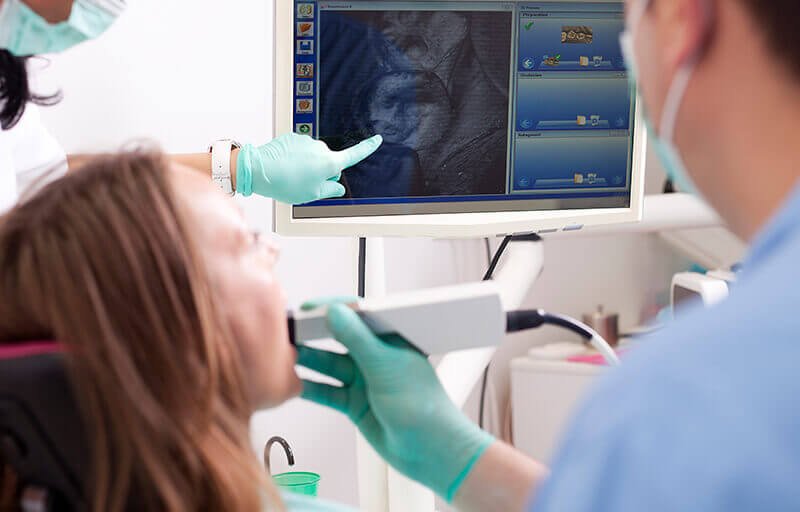For some people, getting a root canal means taking an antibiotic before their appointment. Usually your dentist wants you to be on the medication for at least a full 24 hours if not a week leading up to the procedure. Unfortunately, some people stop taking the medication as soon as they see improvements, they don’t take the medication at all, or they take the antibiotic and then don’t come back for a root canal.
While it may be confusing as to why your dentist wants you using prescription antibiotics prior to an endodontic procedure, they play a very important role.
Combining Medication with Endodontic Treatment
Perhaps the most common reason why a dentist would prescribe an antibiotic for someone who needs a root canal is because of the extent of infection and swelling that they have. You may have a large fistula (“pimple”) near the area where the tooth is abscessed, or even inflammation that extends throughout the jaw and face.
When severe swelling is present, it poses a couple of different problems.
First, it can actually put you at a risk of an emergency situation where you need to be put into the hospital before infection spreads to areas such as the brain. An antibiotic helps to halt the extent of the inflammation so that it doesn’t become out of control.
Second, when an area is severely infected and swollen, it becomes very challenging to numb with local anesthetic. Have you heard rumors of painful root canals? It’s not the actual root canal that hurts…it’s the dental nerve pain involved and the inability to numb areas due to how severely infected they are. Once the antibiotics “kick in,” your dentist can insure that he or she will be able to anesthetize the area being worked on, so that you can be as comfortable as possible. Implementing medication into part of your comprehensive care plan is an effective way to avoid dental discomfort.
Do Antibiotics Heal Abscessed Teeth?
In short, no. Antibiotics don’t heal an infected tooth, but they do help to eliminate the infection that’s active for the time being. The only way to heal the tooth for good is to treat it and seal the nerve chamber off with a root canal.
During a root canal procedure, your dentist will numb the tooth and remove the dying nerve inside of it. After the inner chamber has been carefully cleaned and medicated, a filling material like gutta percha is placed down into it, blocking out any potential bacteria or debris. This “filling” goes all the way through the center of the tooth down to the tip of the root. Because your tooth is numb by this point, it’s just like having any other type of dental work done.
Since your tooth is no longer alive, a crown will need to be placed over it. This protects the non-vital, brittle enamel so that it doesn’t wear down prematurely. Once all of this is completed, you can continue to care for your tooth for as long as the rest of your life.
Your dentist may not even prescribe an antibiotic if the abscess is diagnosed early enough. The key is to ensure your safety, wellbeing, and comfort until the endodontic procedure can be completed.
Taking Antibiotics but Skipping the Root Canal
One of the biggest misconceptions that people have is that after they take an antibiotic, their infection will clear up and they don’t need the root canal. While the initial infection does go away, the source does not. Active openings or decay in the tooth allow more bacteria to congregate and reinfect the tooth. Getting another prescription for antibiotics can lead to drug resistance, rather than treat the true cause of the problem.
Are you avoiding root canal treatment because you don’t have dental insurance through your employer? An alternative is to enroll in a dental savings plan to enjoy 10-60% on services like checkups, fillings, and even root canals. At LowerMyDentalBills.com we offer a variety of dental discount programs to choose from, and access to more than 100,000 dentists nationwide who participate in the dental savings plan. Contact us today for more information.


